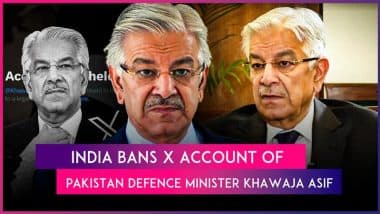Bangkok [Thailand], April 29 (ANI): The Internal Security Operations Command (ISOC) has expressed strong disapproval regarding Justice Minister Tawee Sodsong's suggestion to adopt a governance model for Thailand's three southernmost provinces that is akin to that of China's Xinjiang Uyghur Autonomous Region, as reported by The Nation.
ISOC spokesperson Maj Gen Thammanoon Maison argued that likening Thailand's southern border provinces to Xinjiang is both misleading and improper.
Also Read | Canada: Punjab AAP Leader Davinder Saini's Daughter Vanshika Saini Missing for 3 Days Found Dead in Ottawa.
Thammanoon emphasized Article 1 of the Thai Constitution, which declares that "Thailand is one and indivisible Kingdom." He insisted that any form of autonomy or self-governance that implies separation from the Kingdom contravenes the charter, as noted by The Nation.
During his visit to Yarang District in Pattani on April 12, Tawee initiated a community tourism project and delivered remarks drawing comparisons between Thailand's deep South and Xinjiang, referencing cultural similarities such as the Muslim-majority population and local dialects, according to The Nation report.
Historically, Thailand's deep South, which borders Malaysia, was part of the ancient Patani Sultanate encompassing Yala, Pattani, Narathiwat, and portions of Songkhla. Today, it is often referred to as the three southern border provinces, with most of Songkhla excluded due to its diverse demographics, as highlighted by The Nation.
Thammanoon remarked that while the government is receptive to discussions about appropriate administrative structures for the region, any proposal must conform with the constitution. He pointed out that special administrative zones like the Bangkok Metropolitan Administration and Pattaya City operate under Thai law without compromising national unity, as noted by The Nation.
Drawing upon regions such as Chiang Mai and Mae Hong Son, Thammanoon noted that various local customs, dialects, and attire already exist harmoniously within the national framework. He reiterated that the Thai constitution safeguards religious freedom and cultural expression without necessitating regional autonomy, as reported by The Nation.
Thammanoon reaffirmed the government's dedication to engaging in inclusive discussions on governance models for the deep South, emphasising that any prospective framework must uphold the sovereignty and unity of the Thai state, according to The Nation report. (ANI)
(This is an unedited and auto-generated story from Syndicated News feed, LatestLY Staff may not have modified or edited the content body)













 Quickly
Quickly














